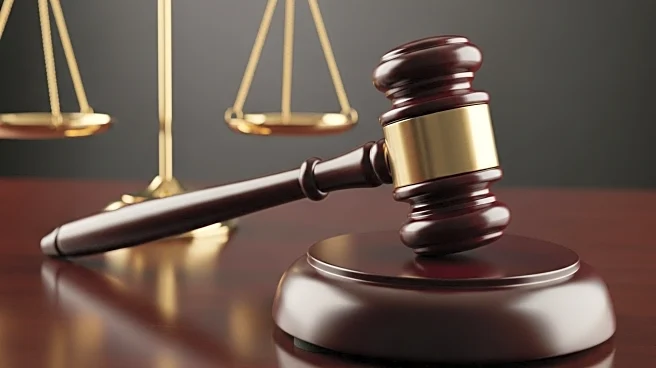What's Happening?
The federal public defender's office in Los Angeles has filed a motion to disqualify acting U.S. Attorney Bill Essayli, appointed by President Trump, arguing that his appointment is unlawful. Essayli, a former Riverside County assemblyman, was appointed by U.S. Attorney General Pam Bondi in April, with his term set to expire in July unless confirmed by the Senate or federal judges. However, the White House extended his term by naming him 'acting' U.S. attorney, bypassing the confirmation process. The motion seeks to dismiss an indictment against Jaime Ramirez, a defendant charged with firearm possession, and disqualify Essayli and his team from participating in prosecutions. The public defenders argue that the Trump administration circumvented congressional limitations on temporary service in such offices. Similar legal challenges have arisen in other states, questioning the legality of appointments made without Senate confirmation.
Why It's Important?
This legal challenge highlights the ongoing debate over the separation of powers and the constitutional role of the Senate in confirming U.S. attorneys. The Trump administration's strategy to extend the terms of acting U.S. attorneys without Senate confirmation could have significant implications for the federal judicial system, potentially affecting the validity of indictments and prosecutions. The case underscores concerns about executive overreach and the potential impact on criminal justice proceedings. If the courts rule against the administration, it could lead to a reevaluation of the appointment process for federal prosecutors and reinforce the Senate's role in ensuring checks and balances within the government.
What's Next?
The legal proceedings will continue as the federal public defender's office seeks to disqualify Essayli and challenge the administration's appointment strategy. The outcome of this case could set a precedent for similar challenges in other states, potentially leading to changes in how acting U.S. attorneys are appointed and confirmed. Stakeholders, including legal experts and political leaders, will closely monitor the case for its implications on the separation of powers and the integrity of the judicial system.









